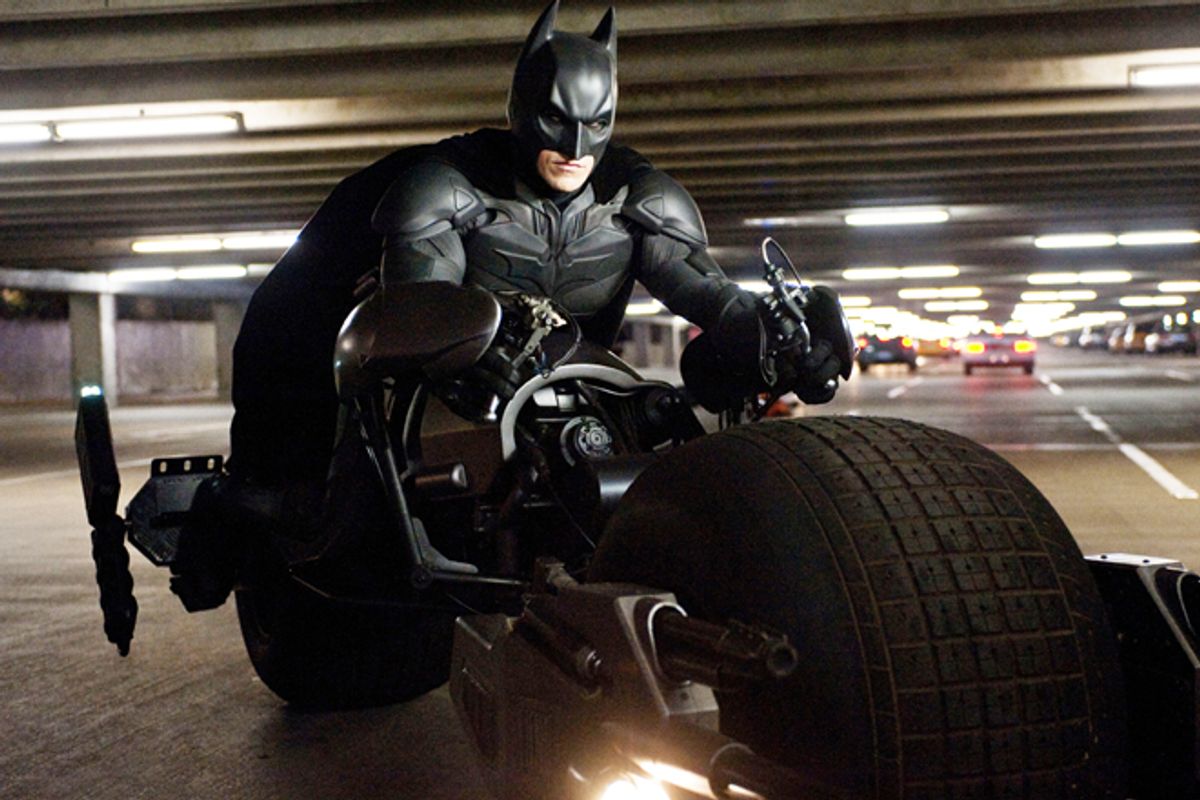Much of my recent book "Back to Our Future" is focused on how 1980s popular culture created many of the perverse stories we still tell ourselves today. Through movies, video games, toys and television shows of that decade, children were specifically taught whom to love and whom to hate. We were inculcated to fear government scientists ("E.T."), EPA officials ("Ghostbusters") and municipal governments (the various police officials that cop heroes had to "go rogue" against). We were also taught to love the military ("Top Gun") and the super-rich ("Silver Spoons," "The Toy," "The Secret to My Success").
That decade, of course, initiated a modern era that now sees multimedia pop culture products serve as a full-on shadow education system -- one that still aims to tell young adults how to divide the world between good and evil. That's why two of this year's most anticipated pop culture products are so important -- they may signal a larger effort to go beyond even the most audacious anti-populism of the 1980s and somehow turn the mass public itself into Public Enemy No. 1.
Reporting on the upcoming new edition of the game "Call of Duty" and the imminent release of the film "The Dark Knight Rises," Gameranx.com reports:
The game’s main villain is Raul Menendez, described as the “idolized Messiah of the 99%” -- a Julian Assange-like character who’s old, experienced, and hell bent on starting a global insurrection against the status quo...
The character, as with the rest of the story, is the creation of David S. Goyer. Goyer is the co-writer of "The Dark Knight Rises," which also shares a similar story featuring Bane as Batman’s primary antagonist, who starts a class war aimed against the rich and privileged of Gotham City with the backing of the common man.
In 1988, a Konami executive said pop culture industries were looking to "take anything remotely in the news and make it a game." Obviously, this move to put the headline-grabbing "99 percent" concept into video games and movies shows what that enduring strategy looks like in practice -- and it doesn't look very good. In fact, it looks like the 1980s on steroids. Whereas that decade saw an anti-populism telling kids that do-gooders like government scientists, EPA officials and police chiefs were society's enemies, we are now seeing an even more audacious anti-populism -- one suggesting to kids that our heroic military and superheroes must defeat leaders of "the common man" in order to protect the common man.
There's a cyclical quality to this, of course. Just as so many 1980s pop culture products reflected the spirit of the Reagan Revolution's conservative backlash, we are now seeing two blockbuster, genre-shaping products not-so-subtly reflect the Tea Party's rhetorical backlash to the powerful Occupy Wall Street zeitgeist. In the same way Republican leaders have caricatured the "99 percent" idea as a menacing "attack upon freedom" or a "mob," "Call of Duty" is essentially equating the "99 percent" idea with terrorism, chaos and violence.
Likewise, in "Dark Knight Rises," though there has been some effort to use the villain's name to portray him as a stand-in for Mitt Romney, the Los Angeles Times is right to flag the true "Occupy Wall Street vibe" of the bad guys. And though it's possible that the film will ultimately provide a more nuanced portrayal of such populist outrage than "Call of Duty" seems intent on presenting, the problem remains the same: when villainous motives and psychopathy is televisually ascribed to mass popular outrage against the economic status quo, it suggests to the audience that only crazy people would sympathize with such outrage.
Knowing the teenage audience is right now forming the next generation's vision of good and bad, it's a message that the 1 percent must love.

Shares